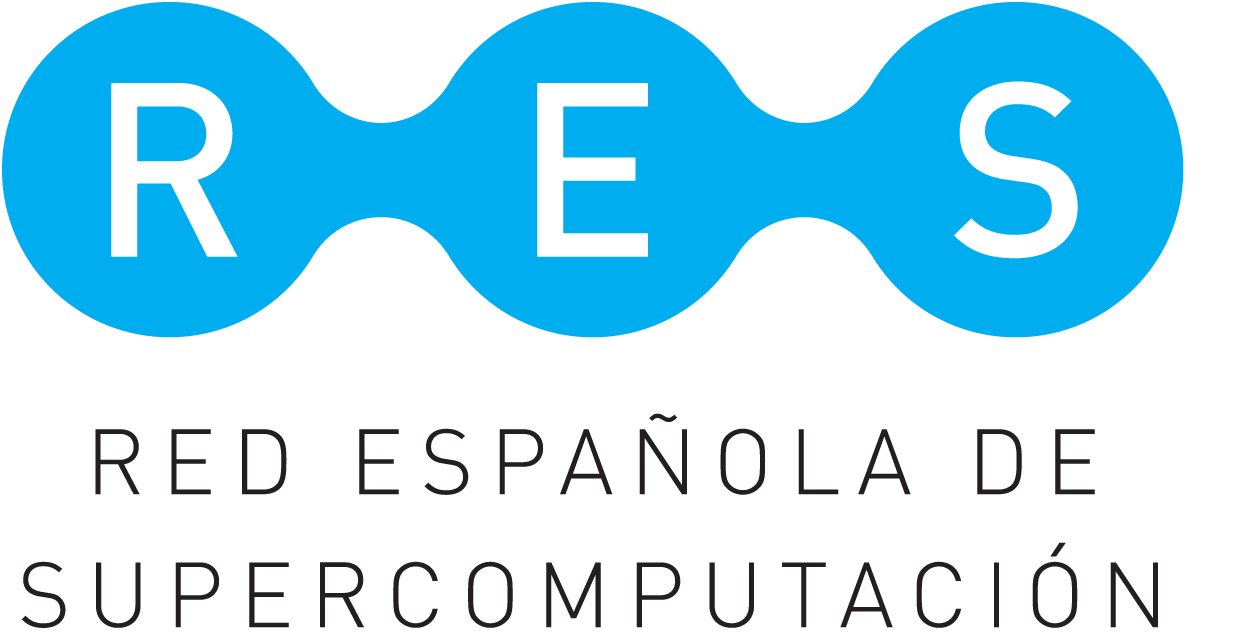The Spanish Supercomputing Network (RES, from Red Española de Supercomputación), established in 2007 by the Spanish Ministry of Science and Education, is a Unique Scientific and Technical Infrastructure (ICTS) distributed throughout Spain, composed of 14 nodes interconnected with high-speed networks. The mission of RES is to offer the necessary computing and data management services and resources to support the development of top-quality, cutting-edge and highly-innovative research projects, made available to the scientific community through competitive calls based on the scientific excellence of the proposals received.
RES is composed of the following members: Barcelona Supercomputing Center - Centro Nacional de Supercomputación (acting as coordinator), Universidad de Zaragoza-BIFI, Universidad de Cantabria, Universidad de Valencia, Universidad de Málaga, Universidad Autónoma de Madrid, Instituto de Astrofísica de Canarias, Centro de Supercomputación de Galicia, Supercomputación de Castilla y León, Centro de Supercomputación de Extremadura, Consorcio de Servicios Universitarios de Catalunya, Port d’Informació Científica PIC, NASERTIC (Navarra) and Centro de Investigaciones Energéticas, Medioambientales y Tecnológicas CIEMAT.

Scientific groups in need of resources for the exploitation of their scientific or research data (storage, virtual machines, residual computing capacity) are invited to apply to this call. Other data services, e.g.: long-term storage are out of the scope of this call. Researchers can request to store, share, publish, or connect large data sets with data and/or computing services on RES data nodes. RES data management projects include both data storage services and the services necessary for their exploitation. RES offers the necessary infrastructure and support for this kind of projects. Data managment projects are granted through competitive access calls. RES calls for proposals for Data Management Services open each year in November and remain open for a period of two months. To participate in the RES calls, each data project must present its own data management plan (DMP) according to the template published in the call, which will be subject to peer evaluation for its approval. An internal access committee will carry out the evaluation made up of technicians, managers, and scientists to evaluate each project presented. RES resources are awarded according to criteria of excellence and impact of the research activity and are free for all research groups.
Researchers can apply for computing time on the available supercomputers of the Spanish Supercomputing Network (RES). The RES nodes also provide technical support and trainings for users. All the resources are aimed at non-profit R&D purposes. They are open to Spanish research groups from academia and public research centres. Research groups based in other countries can also apply for RES resources, but the participation of Spanish researchers is recommended. Computing resources are granted by means of competitive calls. Proposals are evaluated every four months by the Access Committee, which is advised by an Expert Panel composed of prestigious scientists. The use of RES resources is allocated based on the criteria of excellence and scientific impact. Research groups do not need to pay for the use of RES resources.
